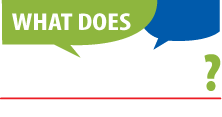Definition of: meter
(mē′tər) noun
1. The fundamental unit of length in the metric system, originally defined as one ten-millionth of the distance on the earth's surface from the pole to the equator; 39.37 inches. In practice, it is the distance between two fiducial lines marked on the platinum-iridium International Prototype Meter deposited at Sèvres, France. See METRIC SYSTEM.
2. A measured verbal rhythm, the structure of verse; a definite arrangement of groups of syllables in a line, having a time unit and a regular beat; also, a specific arrangement of words, or a specific sequence of such lines in a stanza.
3. The character of a musical composition as being divisible into measures equal in time and length, and similar in rhythmic pattern. Also spelled metre. [<F mètre <L metrum measure <Gk. metron] Synonyms : euphony, measure, rhythm, verse. Euphony is agreeable linguistic sound, however produced; meter, measure, and rhythm denote agreeable succession of sounds in the utterance of connected words; euphony may apply to a single word or even a single syllable; the other words apply to lines, sentences, paragraphs, etc.; rhythm and meter may be produced by accent only, as in English, or by accent and quantity combined, as in Greek or Italian; rhythm or measure may apply either to prose or to poetry, or to music, dancing, etc.; meter is more precise than rhythm, applies only to poetry, and denotes a measured rhythm. A verse is strictly a metrical line, but the word is often used as synonymous with stanza. Verse, in the general sense, denotes metrical writing; as, prose and verse. Compare MELODY, POETRY.

Comment about this word, ask questions, or add new information about this topic: